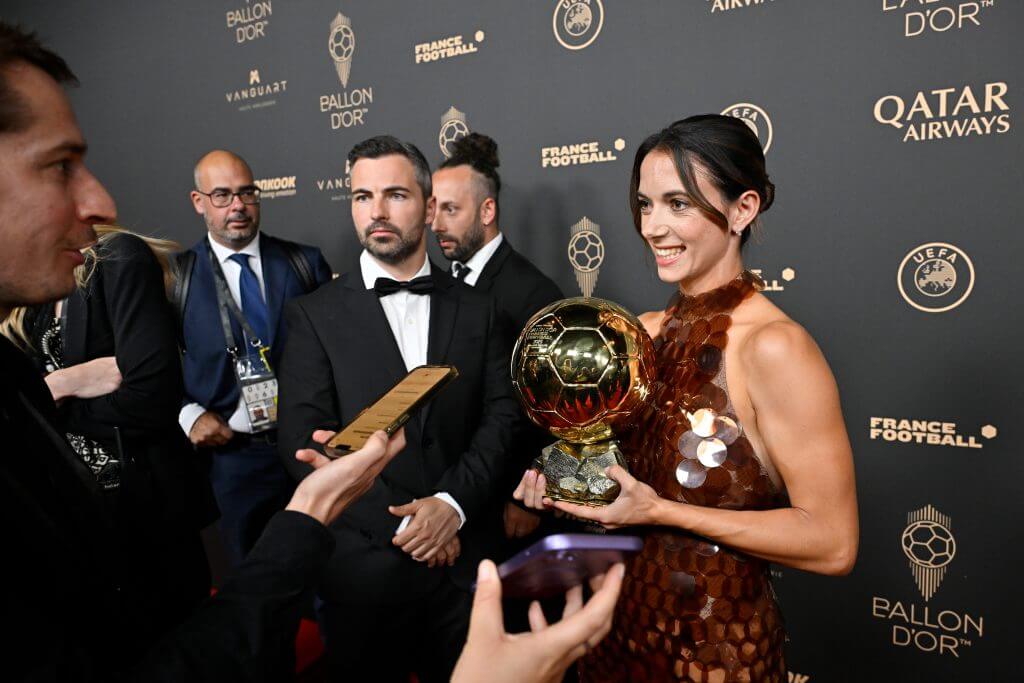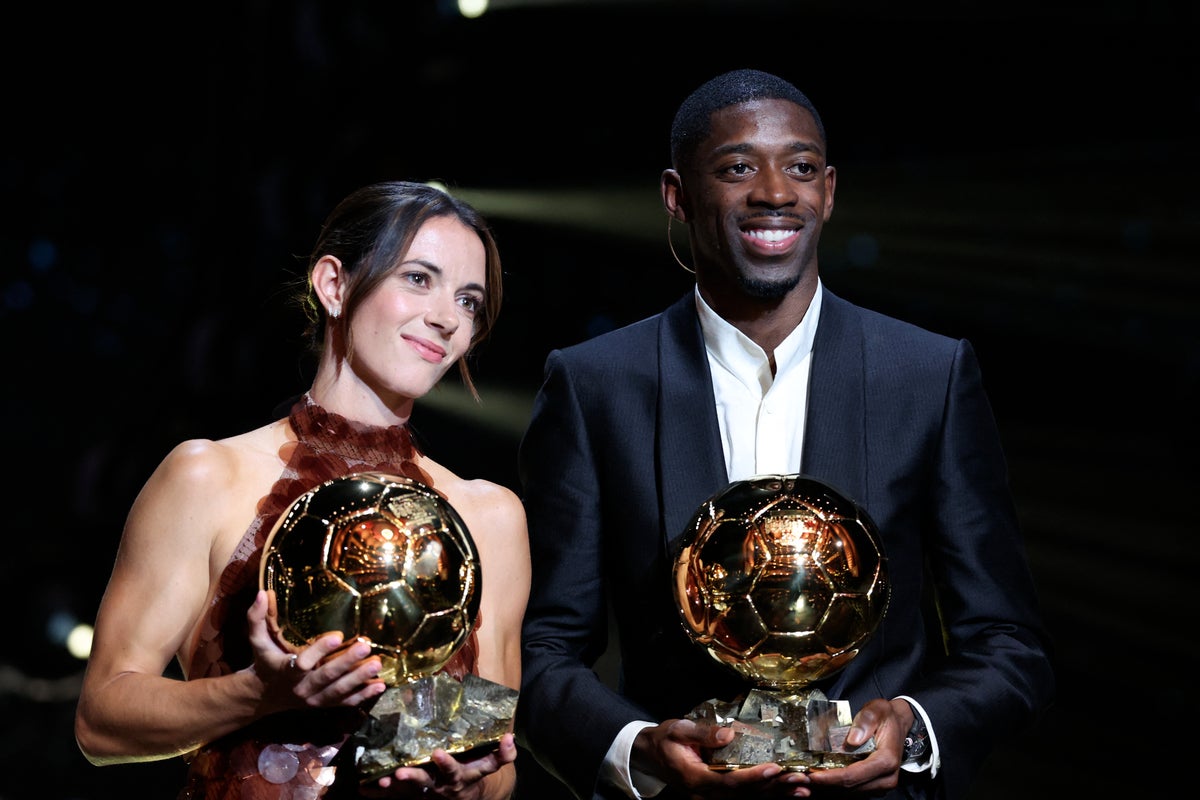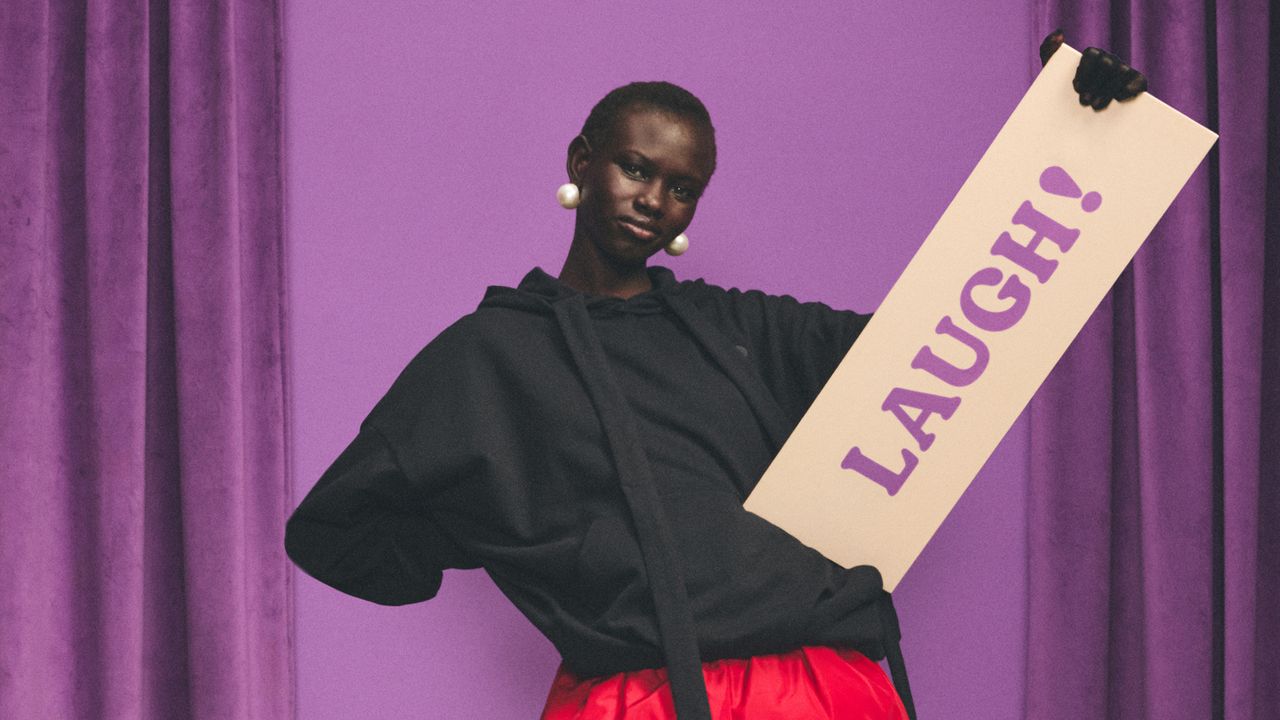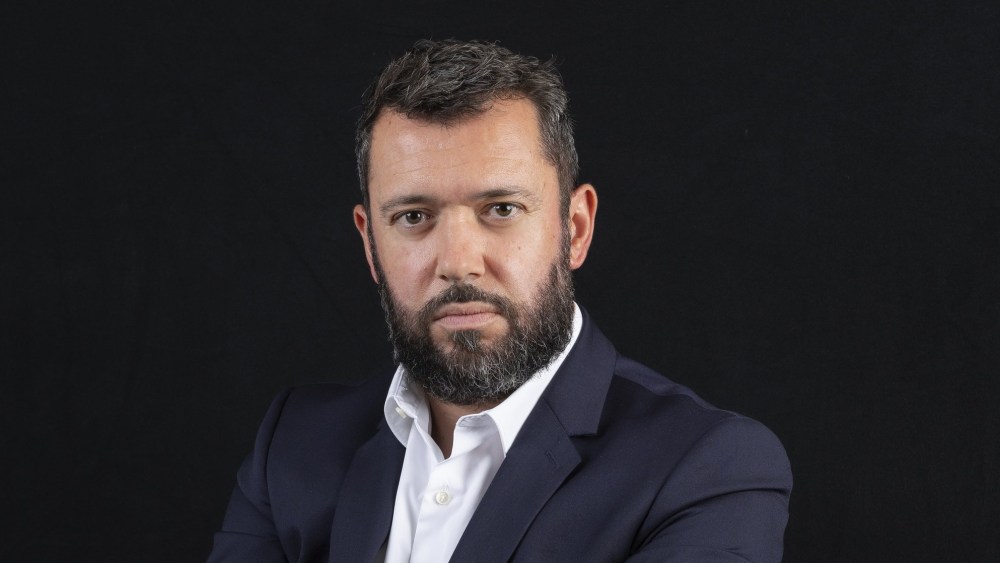
Barcelona and Spanish midfielder Aitana Bonmati accepted her third consecutive Ballon d’Or on Monday night in Paris. Shimmering in a full-length brown paillette dress, she delivered a gracious, if not measured, victory speech.
There is very little room to debate Bonmati’s worthiness of the title of best in the world generally, but I was still shocked that the Ballon d’Or did not go to her Spanish teammate and fellow midfielder Mariona Caldentey, who finished second. A former Barcelona player herself, Caldentey not only had an outstanding season with a brand new team in Arsenal, but beat her old club in the 2024-25 Champions League final for a significant edge on Bonmati in the trophy department.
Advertisement
I can’t emphasise enough how difficult it is to write that Caldentey should have won — but also the imperative of writing that.
All it takes is a glance in the direction of Barcelona or Spain to understand how exceptional Bonmati is as a player. With this award, the 27-year-old joins rarefied air as the first female footballer to win three Ballon d’Ors, and in consecutive years at that. Only Lionel Messi and Michel Platini have achieved the same on the men’s side.
That said, Bonmati receiving the award this year exposes broad stroke, maybe even superficial determinations by some of those 50 journalists who determine, by the combined dual voting of one journalist from each of the top 50 FIFA-ranked nations, the best player in the world.
The women’s game is only growing more influential and sophisticated. It’s time for these awards to live up to their proclaimed prestige by doing the same, which includes bringing more nuance of perspective to the voting pool so that players can be honoured properly.
Advertisement
Bonmati’s stats this season read like standard procedure for her: 20 goals and 16 assists across all competitions. She helped Barcelona secure a domestic treble and Spain reach the finals of the European championships, where they ultimately fell to England. And yet the numbers still pale in comparison to the goosebump-inducing experience of watching Bonmati play. Her vision and instinct are as commanding as her technical capabilities; the magnitude of her presence on the pitch can oftentimes be more easily defined by how a team plays in her absence.
Bonmati is, and has been, the best female footballer in the world for years now.
But performance-wise, her season could be described (even by herself, perhaps) as tepid by her otherworldly standards. What were once yawning chasms between her and every other player on the field shrunk ever so slightly in the past year, rendering Bonmati in human form more often than we’re used to seeing.
What’s more, Barcelona did not win the Champions League as Caldentey did with Arsenal.
Advertisement
“This is football,” Bonmati told the press after the Ballon d’Or ceremony when asked why she believed she still won the award. “You can lose more than win. More (typical) to lose more than win, but our generation, our teams are used to winning a lot. What I can say is: yes, we lose the two finals, but we make it to the final again, no?
“With the national team, with Barca, our generation are making it to the finals every year, every year. And some of them we won it, and these two we lose it, but we have to look that is not easy to make it to the final every year. And yeah, we lose it because the other teams are better. But we lose it for the minimum.”
Both Bonmati and Caldentey represented Spain at the European championship, but Bonmati began the campaign with limited minutes after battling a case of viral meningitis, a diagnosis she announced less than a week before Spain’s first match in the tournament.
Because Bonmati is, well, her, she still made a significant impact in the tournament, scoring a mind-boggling semi-final goal against Germany in the waning minutes of added time to usher Spain to the final.
Advertisement
Caldentey, meanwhile, started every game of Spain’s run, scoring a goal in the group stage and finding the back of the net in their lone open-play goal in the championship. When England equalised and the game was sent to penalties, Bonmati and Caldentey both missed their spot kicks.
Setting aside the weight of the aforementioned accolades, it feels crucial to consider the context of each player’s career this past season in qualifying what they’ve accomplished.
On the Ballon d’Or ballot, voters are asked to consider: “individual performances, decisive and impressive character; team performances and achievements; and class and fair play.”
Bonmati is a singular player in a team sport, and this season she was once again surrounded by familiarity in her teammates at Barcelona; the trademark style at the club itself, where she’s played her entire life; and in familiar Liga F, around which Barcelona’s dominant grip is so tight it’s likely just as much psychological as it is physical.
Advertisement
None of this applied to Caldentey this season, her first with Arsenal in the Women’s Super League (WSL). Caldentey joined the north London side as a free agent ahead of the 2025 season in May. When she made the move, so began the loose spinning of a narrative that a departure from Barcelona for different pastures was necessary for the 29-year-old to break free from the engulfing shadows cast not only by Bonmati, but two-time Ballon d’Or winner Alexia Putellas and Patri Guijarro, who, like Caldentey, has been waiting in the wings for due recognition. (Putellas came in fourth this year for the Ballon d’Or; Guijarro was sixth.)
Watching Caldentey play last season, you’d scarcely know how new she was to Arsenal or the WSL. She scored 19 goals across all competitions, and in May was named the inaugural WSL Player of the Season. Three months later, Caldentey was crowned the Professional Footballers Association (PFA) women’s footballer of the year, an award voted on by players.
The slope to measure a player’s achievements is inherently slippery.
I would argue that Caldentey’s accomplishments this year were more impressive given the context in which she achieved them, and that her individual performance was greater relative to her own capabilities this season than Bonmati’s was to hers.
Advertisement
What happens if Bonmati’s performance next year is considered an improvement from this season, but is essentially a return to her form in 2024, when she won her second Ballon d’Or? How much “worse” can she afford to be to win a fourth? And how much better does everybody else have to be to unseat her?
Next year’s international competitions will be dominated by World Cup qualifiers, in addition to the Asian Cup and Women’s Africa Cup of Nations. It’s possible this scenario could place an even greater weight on club performances than this year did, with a heavily European voter pack. This fluidity only emphasises the need for thoughtful, rigorous consideration of each player and their path in voting for this award.
This article originally appeared in The Athletic.
Arsenal, Barcelona, Spain, NWSL, Women’s Soccer
2025 The Athletic Media Company
#Aitana #Bonmatis #consecutive #Ballon #dOr #exposes #voting #flaws






